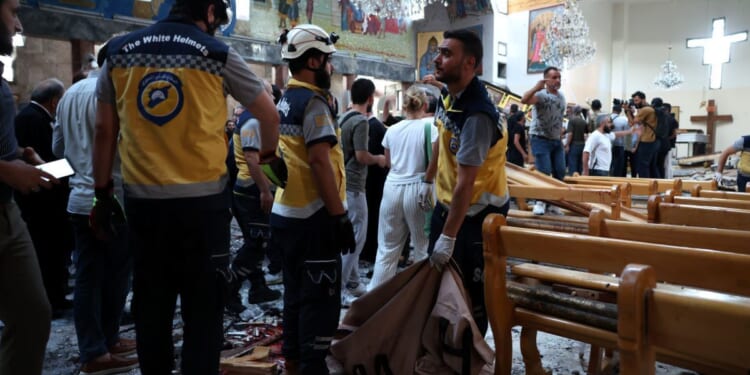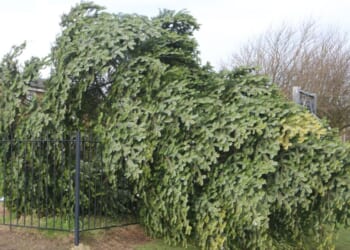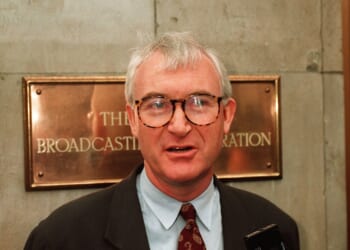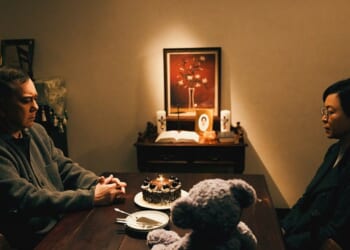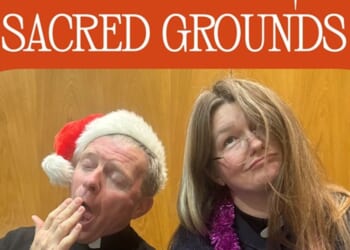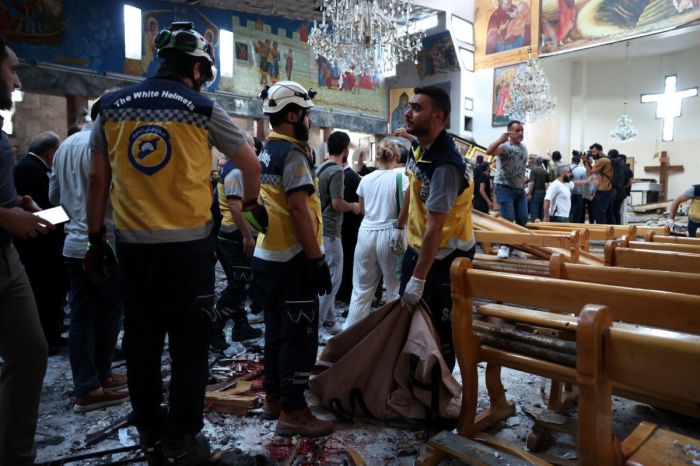
The burial of a 19-year-old who died in the June bombing at the Mar Elias Church in Damascus, Syria, has come to symbolize the “ethno-religious cleansing” of Syria’s Christian indigenous people, says a Swedish investigative journalist who is urging the United States to ensure Syria’s religious minorities are protected as the Trump administration embraces the new government of President Ahmed al-Sharaa.
Nuri Kino, founder of A Demand for Action, an organization advocating for better protection of minorities in the Middle East, was one of several witnesses who spoke before the U.S. Commission on International Religious Freedom during a virtual hearing on Thursday.
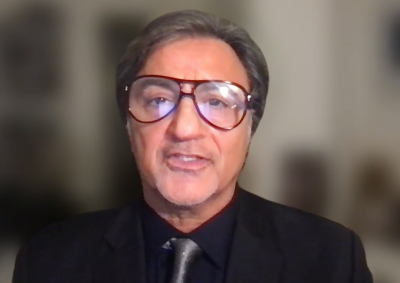
During the hearing titled “Religious Freedom in Syria’s Post-Assad Transition,” Kino opened his remarks by reflecting on Maryana, a teenage girl killed in the bombing of the Greek Orthodox church in Damascus five months ago, the deadliest attack on Syria’s Christian community since the 1860 Damascus Massacre.
“At her funeral, her mother held her hand through the coffin window as church bells tolled,” Kino said about the girl. “Friends and family threw sweets on her coffin, a wedding tradition, since she would not be able to become a real bride.”
“That burial became a symbol of something far larger: The ethno-religious cleansing of Syria’s ancient minorities, of its Christian indigenous people,” the journalist and human rights advocate added.
The 19-year-old girl and over two dozen people were killed during a Sunday morning prayer service at the Mar Elias Church on June 22. An assailant entered the building and opened fire on the congregation before detonating an explosive vest.
Kino, who stated that he belongs to the Syriac Orthodox Church, which speaks a dialect of Aramaic, “the mother tongue of Jesus,” noted that extremists have targeted Syrian Christians for their faith for decades.
Before the start of the Syrian Civil War in 2011, Christians made up about 10% of Syria’s population (around 2 million), a number that has been in a steady decline over the years. The Catholic charity Aid to the Church in Need recently estimated that there were around 540,000 Christians in Syria in 2024. Other experts suggest that the number is around 300,000
The journalist warned that, for Christians in Syria, the destruction of churches, the kidnappings and other forms of violence didn’t stop after the fall of President Bashar al-Assad’s regime in December.
The regime fell after Hayat Tahrir al-Sham, a formerly Al-Qaeda-linked group delisted as a terror organization by the U.S. in July, seized control of Damascus, an event that has made religious freedom advocates concerned about the new administration’s capacity and willingness to protect Christians and other minorities.
Kino criticized what he described as the international community’s silence in the face of systematic persecution, warning that the easing of sanctions and political normalization efforts have not included sufficient guarantees for minority protection.
“Speeches don’t stop emigration,” the journalist said. “Christians refuse to abandon 2,000 years of faith and memory in their beloved motherland. But fear and hopelessness are pushing them to leave. Thousands have applied for asylum.”
“If any country opened its door wide, few would remain,” he continued. “The U.S. administration should take the opportunity to push Syria in the right direction.”
On Monday, al-Sharaa made history by becoming the first Syrian president to visit the White House in Washington, where he met with U.S. President Donald Trump. After the meeting, Trump announced the temporary suspension of sanctions for another six months, saying he wants to see “Syria become a country that’s very successful” and believes al-Sharaa is the guy who can lead that effort.
While Kino acknowledged the United States’ need for a “stable, constructive new partner in the Middle East,” Kino asserted that, as a “defender of human rights,” the United States should “make demands” of its new partner.
One of the journalist’s recommendations involves making aid and the easing of sanctions contingent on measurable benchmarks for religious freedom, verified by independent monitors.
He also called for U.S. diplomatic pressure and security guarantees to protect sacred Christian sites in various cities, including Damascus, and for increased funding to minority-led Syrian aid and human rights groups.
Kino also proposed appointing a special envoy for religious freedom in Syria, with a direct line to the secretary of state and a mandate to operate on the ground.
“These are the minimum steps required to stop a 2,000-year-old community from disappearing on our watch,” he said.
Reflecting once more on the 19-year-old girl killed in the church bombing, Kino warned that the teenager’s funeral is a symbol of what happens “when an entire people is silenced.”
“The doctors, engineers and teachers Syria needs are vanishing along with its indigenous communities,” Kino declared. “If the world allows that to happen, Syria will not only lose a culture, it will lose a piece of its soul.”
Samantha Kamman is a reporter for The Christian Post. She can be reached at: samantha.kamman@christianpost.com. Follow her on Twitter: @Samantha_Kamman

